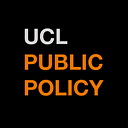“Everything, everywhere, all at once”: Reflections on international climate change and environmental policy engagement

Written by Dr Kate Greer, Senior Research Fellow, UCL Centre for Climate Change and Sustainability Education.
Recently, I was fortunate to join a study tour in International Geneva with 12 researchers from a range of disciplines whose work relates to climate change and environmental governance. My research interests centre on the governance of environmental and climate change education, and I was eager to gain insight into realities of global policymaking and engagement in this field.
During the three-day visit, we met with staff from a range of UN organizations, and ‘boundary organizations’ that are part of the UN ecosystem. We were also asked to share our existing ‘policy engagement plans’, an exercise which helped me to reckon with my own reality: currently, my ‘plan’ might best be described as ‘everything, everywhere, all at once’ (with thanks to film-makers Daniel Kwan and Daniel Scheinert). Similar to Evelyn Wang, the film’s lead character, my ‘plan’ finds me awash with moments of empowerment, confusion, overwhelm, frustration and bursts of action, underpinned by a sense of duty and, of course, love. While the 2022 film achieved widespread critical and popular success, it is unlikely that my plan will be so impactful unless, that is, I can tap into a parallel universe …
But back to the reality of International Geneva.
The visit exposed us to complex policymaking machinery through meetings with many organisations: the IPCC, World Meteorology Organisation and the World Climate Research Programme, two arms of the International Institute of Sustainable Development (IISD) — one focused on National Adaptation Plans, and the other on negotiating finance agreements, the Geneva Environmental Network, the United Nations Conference on Trade and Development, the Basel, Stockholm and Rotterdam Conventions which focus on waste and pollutants, the British Embassy and the UK Mission to the UN in Geneva, and several academics who work at Science-Policy Interface, including on One Health (which recognises the interdependent nature of human, animal and ecosystem health), and Renewable Energy Systems.
Amongst my numerous reflections that were prompted by the discussions, below I share two related to environmental education:
Creating and holding space to envision sustainable futures
The widely critiqued discourses of economic growth and rational thinking that prevail within environmental and climate change governance, were evident during our visit. For instance, we were told that “a fish while it’s swimming is a resource; once it has been extracted it is goods”. I wondered (aloud), “but when is a fish, Fish?”, appreciating Robin Wall Kimmerer’s teachings that naming more-than-human species helps to foster respectful relations with all Earth-bound creatures. Elsewhere, the natural environment and more-than-human species were missing from discussions of financial agreements and legal commentaries on ‘economic sustainable development’; and the maxim ‘if you can’t measure it, you can’t manage it’ was invoked. We also heard about successes in the preparation of climate change adaptation plans which, once it comes to implementation, can flounder; and we perceived the very low profile of non-Western knowledge within decision-making spaces and processes.
Such instances led me and several other colleagues to wonder and worry about whether spaces exist within global governance systems for thinking and feeling about the kind of world the people working within these institutions would like to live in, the outcomes of which might challenge the reified ‘rational’ worldview. For me, it reaffirmed the important role of education — in all its guises — to explicitly engage with people’s hearts, not only their minds, and to create and hold spaces so that all citizens can envision more ecologically sustainable ways of being on Earth. If hearts aren’t engaged, who will be compelled to implement the plan; to critique who really benefits from economic growth; and to recast fish as Fish.
Long-term nature of policy engagement
A second reflection relates to the importance of so-called ‘soft skills’ within this rationalistic world where quantitative data is revered. Paraphrasing one of the data specialists, ‘20% of the problem of policy development is technical, and 80% is relational’. That is, a substantial part of the work is to find the right people to connect with, to build trust, align values, priorities and agendas. Across the visit it became apparent that skills in cooperation, collaboration and empathy must be core in Green Skills 101 as they are required in all fields where graduates want their work to contribute to change.
We were also reminded of the paramount importance of national governments within global governance. While advice and direction are supplied to international-level policymakers by national government departments and ministries, the national administrations direct and constrain international policymakers. We were thus reminded of the importance of civil society, including NGOs and academics, for providing evidence and subject-matter expertise to ministries throughout the year as a crucial avenue for engaging internationally. This forced me to grapple with the incongruence of the long-term relationships that are essential for meaningful policy engagement, the frequent movement of staff with government departments and ministries, and the short-term employment that can proliferate within the environmental education field.
Oh, and as for that policy engagement plan, for now, maybe I’ll simply stick some googly eyes on it and carry on.
The visit was coordinated by the UCL Public Policy, UCL European Institute, UCL Global Engagement and the Geneva Science-Policy Interface at University of Geneva as part of a wider programme of work to support international policy engagement at UCL.
…………………………………………….
Kate Greer who is a researcher whose work focuses on environmental education, its policy, and related issues of justice. Kate’s environmental education career has included roles in government and non-government organisations in Australia and the Southeast Asia and Pacific region. She currently works in the UCL Centre for Climate Change and Sustainability Education.
Kate can be contacted at kate.greer@ucl.ac.uk
